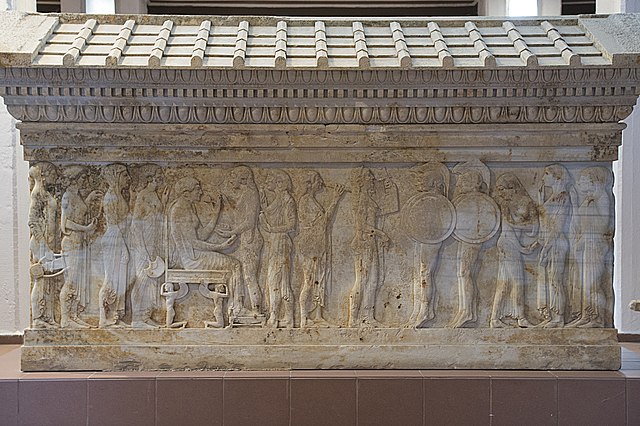In Greek mythology, Idomeneus was a Cretan king and commander who led the Cretan armies to the Trojan War, in eighty black ships. He was also one of the suitors of Helen, as well as a comrade of the Telamonian Ajax. Meriones was his charioteer and brother-in-arms.
Idomeneus coming back, Palais Niel, France
Italian and German title pages of the original libretto of Mozart's opera, Idomeneo
The sacrifice of Idomeneus to Jupiter, engraving by W. Skelt Wellcome
Mentor offers Idomeneus an olive branch to Adventures of Telemachus by Jacob Folkema
The Trojan War was a legendary conflict in Greek mythology that took place around the 12th or 13th century BCE. The war was waged by the Achaeans (Greeks) against the city of Troy after Paris of Troy took Helen from her husband Menelaus, king of Sparta. The war is one of the most important events in Greek mythology, and it has been narrated through many works of Greek literature, most notably Homer's Iliad. The core of the Iliad describes a period of four days and two nights in the tenth year of the decade-long siege of Troy; the Odyssey describes the journey home of Odysseus, one of the war's heroes. Other parts of the war are described in a cycle of epic poems, which have survived through fragments. Episodes from the war provided material for Greek tragedy and other works of Greek literature, and for Roman poets including Virgil and Ovid.
The Golden Apple of Discord by Jacob Jordaens
The Burning of Troy (1759–1762), oil painting by Johann Georg Trautmann
Polyxena Sarcophagus in Troy Museum
The Judgement of Paris (1599) by Hendrick van Balen the Elder. Gemäldegalerie, Berlin








